
Hollywood, often seen as a glittering beacon of creativity and storytelling, has a complex history marked by both extraordinary triumphs and deeply entrenched challenges, particularly concerning diversity and representation. For decades, Black actors faced immense hurdles, often relegated to stereotypical and demeaning roles, enduring social prejudice and segregation that sought to limit their potential and impact. Despite these formidable obstacles, a remarkable cohort of Black stars emerged, whose perseverance, immense talent, and unwavering commitment not only shattered barriers but profoundly transformed the industry, writing new scripts many people never imagined.
These incredible movie stars, often from minority groups, challenged and overcame pervasive stereotypes. Whether discussing Sidney Poitier, who shocked the world by becoming the first Black man to win the Academy Award for Best Actor, or early pioneers like Josephine Baker who actively fought social prejudice, their contributions were revolutionary. They demonstrated that talent, charisma, and a powerful voice transcend race, infiltrating every film category, including action, comedy, drama, and science fiction. Their stories are not merely chronicles of individual success but testaments to a collective struggle for dignity, equality, and authentic representation within one of the world’s most influential cultural industries.
We embark on a journey through the impactful careers of these extraordinary individuals, whose artistic prowess and courageous activism reshaped perceptions and opened doors that were once firmly shut. Their narratives are woven into the very fabric of Hollywood’s evolution, highlighting how their contributions were instrumental in shaping a more equitable landscape for all. Each star’s story is a powerful reminder that true transformation stems from resilience, talent, and an unyielding spirit to challenge the status quo, leaving an indelible mark that continues to inspire and resonate in the film industry today, celebrating their long-term impact and legacy.
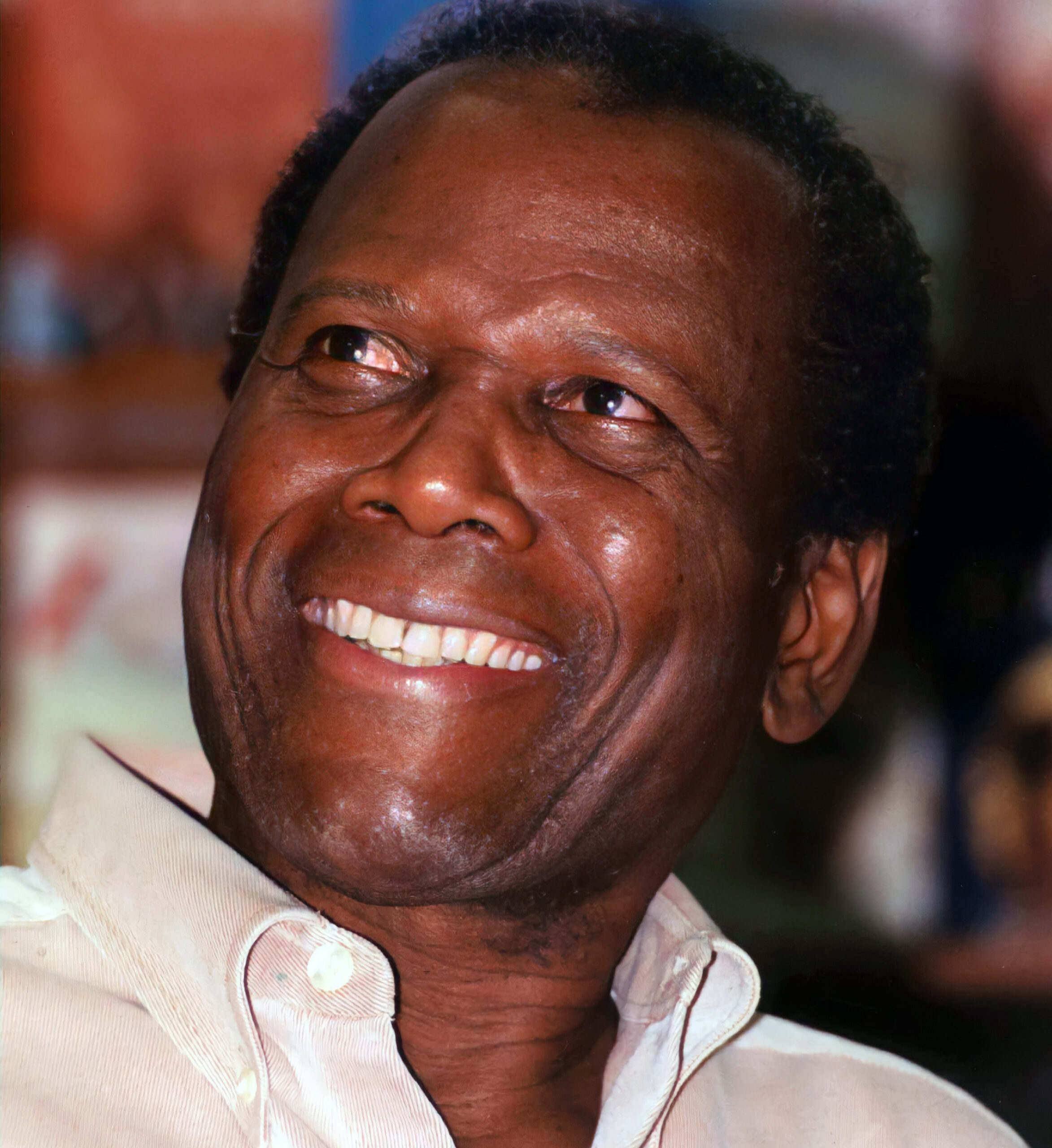
1. **Sidney Poitier**
Sidney Poitier’s career stands as a monumental testament to breaking racial barriers in Hollywood’s golden era, fundamentally reshaping the industry’s understanding of Black talent. He was more than just an actor; he was a movement, known for his dignified presence and commanding performances that often portrayed characters exuding moral strength, intelligence, and integrity—qualities that powerfully defied the racial stereotypes prevalent in his era. Poitier gained popularity quickly while playing daring roles in films, and as a way of fighting racial prejudice on screen, he took roles directly attacking racism at a time when many avoided the topic.
In 1964, Poitier made history by becoming the first Black actor to win an Academy Award for Best Actor for his role in “Lilies of the Field.” This groundbreaking victory not only opened doors for Black talent in leading roles but also solidified his status as a trailblazer. Some of his major roles include “No Way Out,” “The Blackboard Jungle,” “Porgy Bess,” and “Lillies of the Field,” the latter also earning him a Golden Globe Award, making him the first Black man to win both. His portrayal of characters in “Guess Who’s Coming to Dinner” and “In the Heat of the Night” showcased his immense talent while courageously confronting issues of race and social justice, forcing Hollywood to rethink its portrayal of Black men and characters.
Poitier’s influence extended far beyond his captivating performances; he became a symbol of equality and change. His work was recognized by Queen Elizabeth II, and he was honored by President Barack Obama with the Presidential Medal of Freedom, highlighting his global and national significance. He made Hollywood an open venture where anybody could make a difference regardless of background, proving that “Hollywood has been at the forefront in terms of growth,” and actors like Poitier were pivotal in this evolution. His legacy is one of courage and groundbreaking achievements, continually inspiring future generations.
Moreover, Poitier’s contributions were critical in paving the way for actors across the world to showcase their skills and talent in Hollywood. His characters consistently defied stereotypes and addressed social issues, setting a new standard for Black representation. The image of Poitier, often seen in a suit, speaking with eloquence and conviction, resonated deeply with audiences and critics alike, making him an undeniable force for progress and a foundational figure in the history of Black cinema.
Read more about: These 10 Legendary Actors Totally Defined 70s Cinema with Their Iconic Charisma
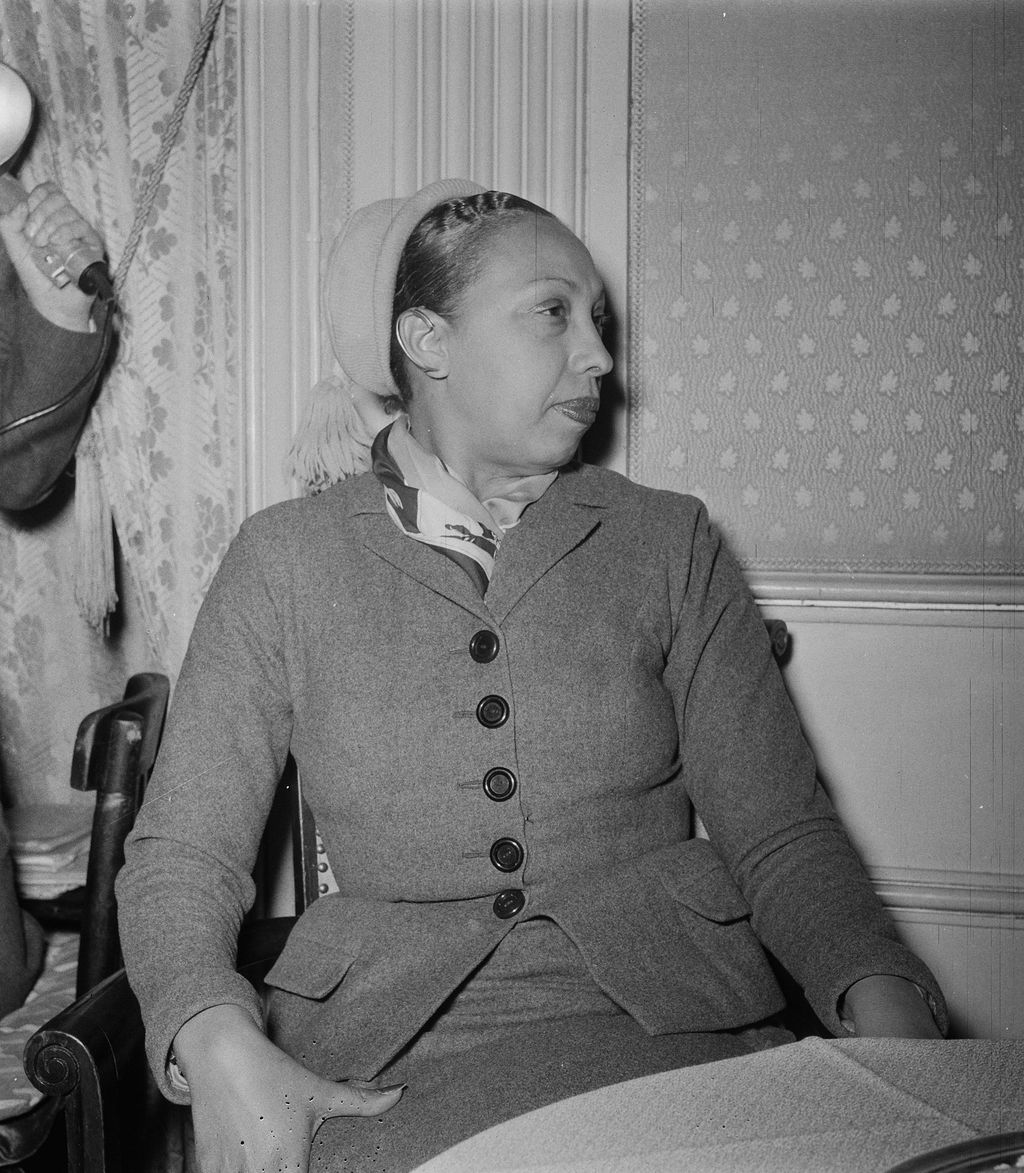
2. **Josephine Baker**
Josephine Baker was an American Hollywood trailblazer who not only broke stereotypes by becoming one of the first successful Black actors but also actively fought social prejudice and segregation against Black people and women. During the silent age of cinema, a period when women had limited access to the movie industry, Baker’s stunning sex appeal and charm helped her shatter these barriers, carving out a unique space for herself. She possessed a beautiful voice and powerful singing that would make crowds stand during her performances, captivating audiences worldwide with her dynamic stage presence.
Beyond her artistic achievements, Baker was a fierce advocate for civil rights, using her platform to challenge racial discrimination directly. When she toured America in the 1950s, she famously made history by refusing to perform at venues that segregated their audiences. She was the first woman to insist that audiences of every race and color watch her performances together, a courageous stand against the prevailing norms, thereby creating integrated spaces where none had existed before. This bold stance made her a significant figure in the fight against racial injustice.
Baker was also audacious enough to publicly expose hotels that denied her access or refused to accommodate her due to her race. Such actions were pivotal, as they “led to reduced racial discrimination in the country by a huge margin,” according to historical accounts. She won several individual awards as an actor and was a strong supporter of the NAACP, further cementing her commitment to social justice and civil rights. Remarkably, she was also the only woman to make a speech at Martin Luther King Jr.’s march, underscoring her pivotal role in the broader civil rights movement.
Her journey as an entertainer and activist showcased an extraordinary blend of artistic brilliance and unwavering courage. Baker’s ability to use her fame to challenge systemic racism helped transform public perception and industry practices. Her early success in the film industry, coupled with her uncompromising stance against discrimination, established a powerful precedent for future Black artists, demonstrating that one could achieve stardom while simultaneously advocating for profound social change.
Read more about: Unvarnished Truth: 14 ‘Classic’ American Cars That Delivered Awful Driving Experiences
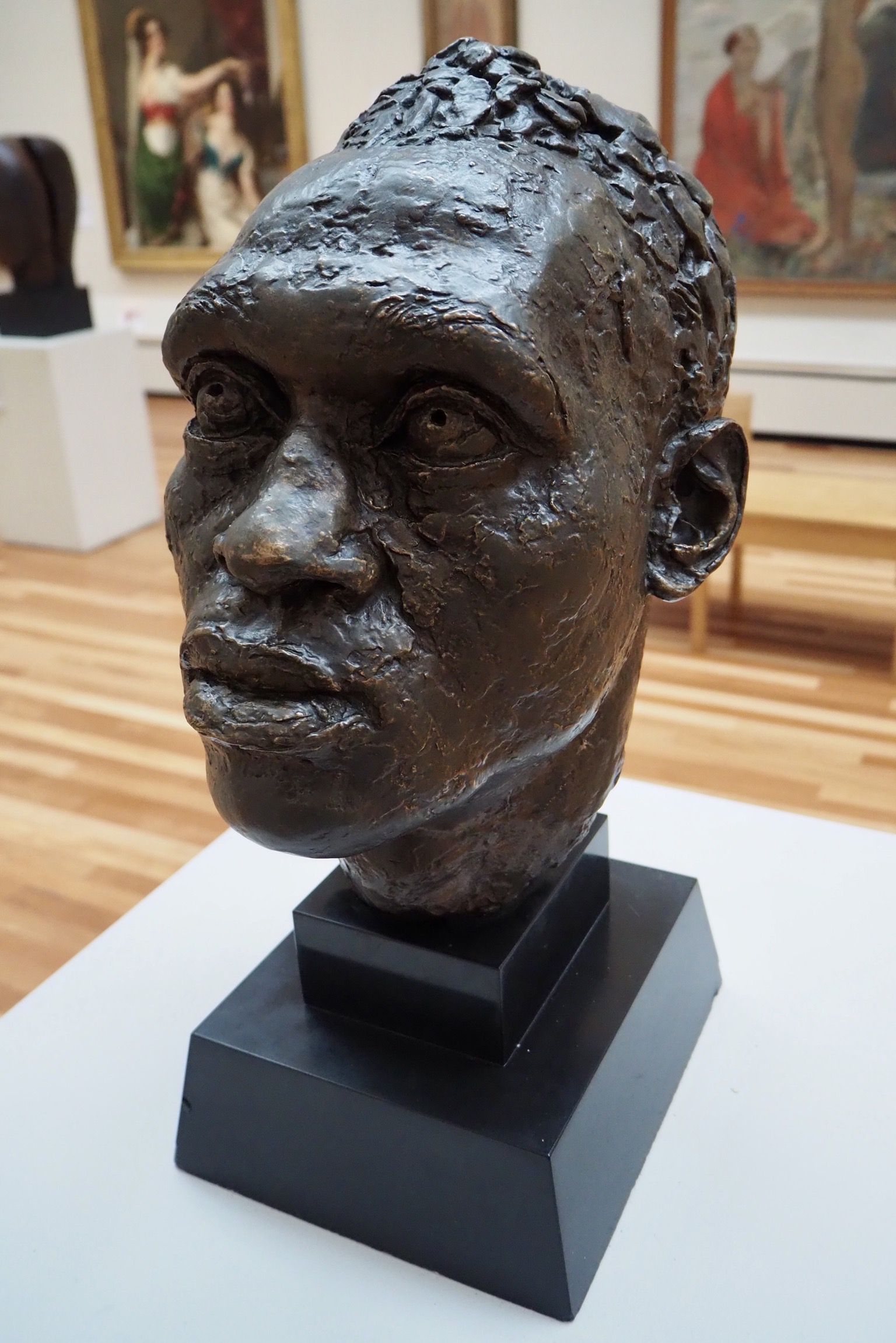
3. **Paul Robeson**
Paul Robeson was not merely a trailblazer in Hollywood but a profound change-maker whose influence extended across the entire film industry and the nation, championing equality and combating racial discrimination. His journey began academically, as one of the first Black students admitted to Rutgers University before he ventured into film production in the 1920s. Robeson’s talent was multifaceted, showcasing his acting prowess on stage with powerful singing skills, compelling narration, and impressive oratory abilities, distinguishing him as a rare polymath.
He achieved significant stardom in film production in Europe, where he was celebrated for his versatility and dramatic depth in movies like “The Emperor Jones” and “Sanders of the River,” becoming one of the few Black actors of his time to play complex, leading roles. His return to the United States after the First World War marked another pivotal moment. While in America, Robeson became the first Black man to play one of Shakespeare’s most iconic works, Othello, making him a popular figure in the country in a remarkably short time. His performance was lauded for its depth and complexity, setting a new standard for Black representation in theater.
However, Robeson consciously refused many chances to further his career in Hollywood because he strongly disliked the stereotypical and limiting roles often offered, ultimately opting to become a prominent political activist. “It is his refusal to join Hollywood and exposing hotels and organizations that denied him chances to act that transformed Hollywood leading to the addition of black actors.” His refusal to conform and actions in exposing systemic injustices were instrumental in pushing for greater inclusion. Robeson consistently used his platform to advocate for civil rights and workers’ rights, making his artistry inseparable from his activism, leaving a powerful legacy of resilience and courage.
Robeson’s impact also resonated deeply in his commitment to principles over commercial success. By choosing roles that aligned with his values and speaking out against racial injustice, he expanded the possibilities for Black actors. His work remains influential, highlighting the power of storytelling to provoke change and underscoring how his “contributions highlight the intersection of art and activism, leaving an enduring impact” that continues to inspire artists and activists alike.
Read more about: Robert Jay Lifton: A Psychiatrist’s Profound Journey Into Humanity’s Extreme Situations and the Quest for Understanding Evil, Dead at 99
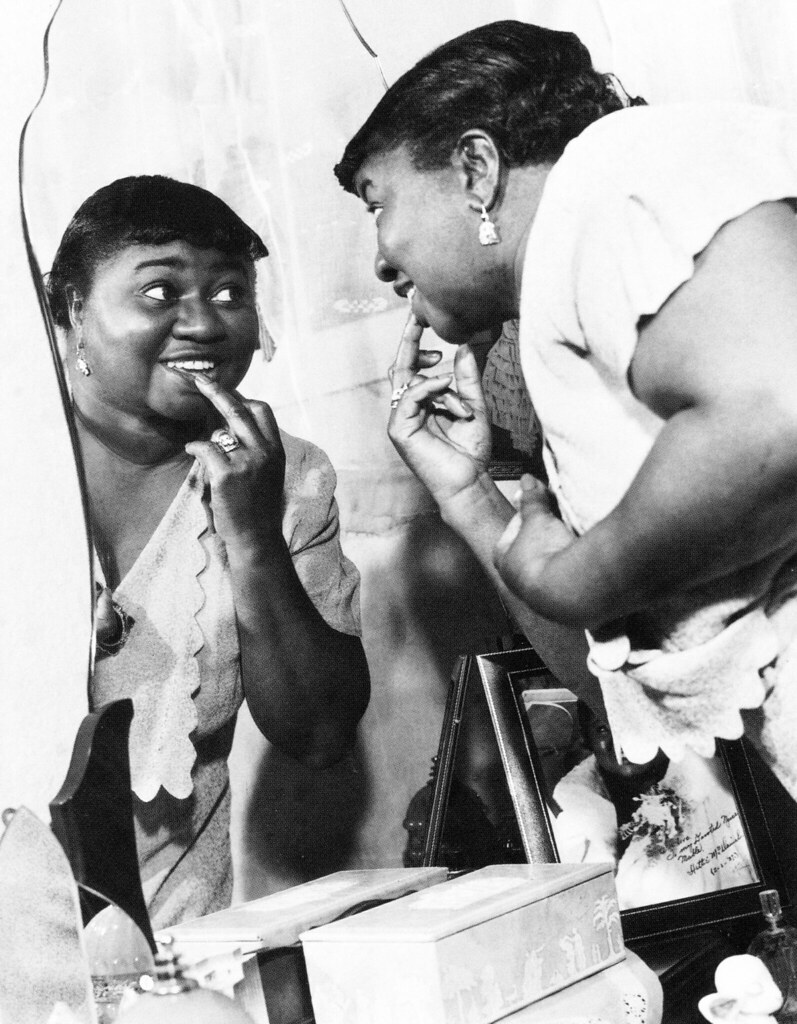
4. **Hattie McDaniel**
Hattie McDaniel’s journey to becoming an accomplished singer, songwriter, and actress was paved with numerous obstacles that would have deterred many. Born to former slave parents, she faced immense societal prejudices, often being looked down upon by both whites and even some fellow Black individuals who criticized her for perpetuating racial stereotypes through her roles. Despite these formidable challenges, McDaniel’s remarkable talent and perseverance shone through, allowing her to break into a fiercely segregated industry and carve out a significant place for herself.
Her breakout movie, “Gone with the Wind” in 1939, was a period of both immense success and profound personal pain. While the film’s premiere went on in Atlanta, McDaniel herself was tragically denied access to attend because it was a whites-only event, a stark reminder of the deep-seated racism of the era. This personal experience with racial discrimination fueled her determination to push for equality within Hollywood and beyond, even as she faced criticism for the types of roles she was often limited to.
McDaniel made history by becoming the first Black person to win an Academy Award, taking home the Oscar for Best Supporting Actress for her iconic portrayal of Mammy. This triumph was groundbreaking, not only for herself but for all Black actors, shattering racial barriers during a time of strict segregation and signaling a monumental shift. Her overall success was groundbreaking, as “in addition to breaking ground at the Academy Awards – she also became the first Black woman to sing on national radio,” extending her influence beyond film into other media.
Her victory inspired countless others, proving that talent transcends race, and her success helped open avenues for more Black actors during the twentieth century, cementing her status as one of the industry’s legends. Her career spanned decades, with over 300 film appearances, reminding us of her enduring impact. McDaniel’s journey wasn’t easy, but her achievements continue to resonate in Hollywood history, celebrating her as a pioneer who challenged the status quo and laid crucial groundwork for future generations.
Read more about: Unlocking the Magic of Old Hollywood: 10 Essential Classic Films Every Beginner Cinephile Needs to See

5. **Lena Horne**
Lena Horne, a renowned singer and actress, stood as a significant trailblazer in both music and film, challenging the racial conventions of her time with her undeniable talent and sophisticated presence. Her captivating performances in films like “Stormy Weather,” where her rendition of the title song became one of her signature moments, set her apart and showcased her exceptional talent and charisma. She also starred in “Cabin in the Sky,” further highlighting her versatility as both an actress and singer, enchanting audiences with her powerful voice and stage command.
Horne’s success was particularly significant as she became one of the first Black women to sign a major Hollywood contract with Metro Goldwyn Mayer. This achievement was not just a personal milestone but a critical step forward, defying racial stereotypes and opening doors for more nuanced portrayals of Black characters on screen. Her refusal to conform to the prevalent stereotypes of the time was a powerful statement within the industry, as she “refused to conform to the stereotypes of the time,” making her a pivotal figure in challenging established norms.
Despite facing discrimination throughout her career, Horne’s legacy is celebrated for her profound contributions to the arts and her unwavering activism. Her influence extended beyond entertainment, as she became an advocate for civil rights, using her platform to fight against discrimination both within Hollywood and in society at large. She “remained an outspoken advocate for racial equality,” embodying the intersection of artistry and social justice, utilizing her fame to champion change.
Horne’s journey exemplifies strength, immense talent, and a relentless fight for equality in a challenging industry, leaving an enduring impact that continues to inspire artists and activists alike. Her contributions highlighted “her undeniable talent but also for her refusal to conform to the stereotypes of the time,” paving the way for more authentic and diverse representation. Her journey was filled with obstacles, but her achievements remain influential, reminding us of the importance of perseverance.
Read more about: Rock ‘N’ Roll on Wheels: 14 Iconic Musicians and the Classic Rides That Define Them

6. **Dorothy Dandridge**
Dorothy Dandridge’s elegance and undeniable talent set her apart in Hollywood, making her an enduring icon despite the pervasive racial barriers of her time. As one of the most successful black actors in Hollywood, she made history as the first African-American woman to be nominated for an Academy Award for Best Actress for her leading role in “Carmen Jones.” This groundbreaking film powerfully showcased her incredible singing and acting abilities, bringing her global recognition and highlighting the depth of her artistry and captivating screen presence.
Dandridge’s performances were crucial in breaking stereotypes, as she consistently portrayed complex and nuanced characters, a rarity for Black actresses during her era. Her career, though often limited by the racial prejudices of the time, included other iconic performances in films like “Porgy and Bess” and “Island in the Sun,” where she bravely defied the conventional and demeaning roles typically offered to Black actresses, demonstrating her commitment to meaningful representation and challenging the boundaries of what was expected.
Beyond her achievements on screen, Dandridge was also an accomplished singer and dancer, captivating audiences on Broadway and in nightclubs, showcasing her multifaceted talent. Her success was significant not only for her undeniable talent but also for her refusal to conform to the stereotypes of the time. Her courage and determination left an indelible mark on Hollywood, paving the way for future generations of Black women in film, particularly those seeking leading roles that reflected their full humanity.
Dandridge’s journey, though filled with challenges and navigating a racially charged era, remains influential and inspiring. Her legacy is celebrated for its contributions to both entertainment and social progress, reminding us that “her courage and determination continue to inspire artists today.” She paved the way for others, leaving an enduring impact that continues to inspire artists today, celebrating her as a pioneer who broadened the scope of possibility for Black female performers in the industry and fought for authentic portrayals.
The enduring impact of these trailblazers reverberates through the work of subsequent generations, who have not only expanded upon the foundations laid but also redefined what is possible for Black artists in Hollywood. These influential figures have showcased remarkable artistic versatility, championed advocacy, and maintained a sustained influence that continues to shape a more inclusive and diverse industry. Their careers reflect a dynamic evolution, moving beyond initial battles for presence to command complex narratives and industry leadership. Each of these stars, through their unique contributions, has further cemented the legacy of Black excellence in film, inspiring countless others and demonstrating the profound power of representation.
Read more about: Beyond the Bombshell: Unearthing 14 Hidden Truths About Marilyn Monroe’s Life, Loves, and Legacy
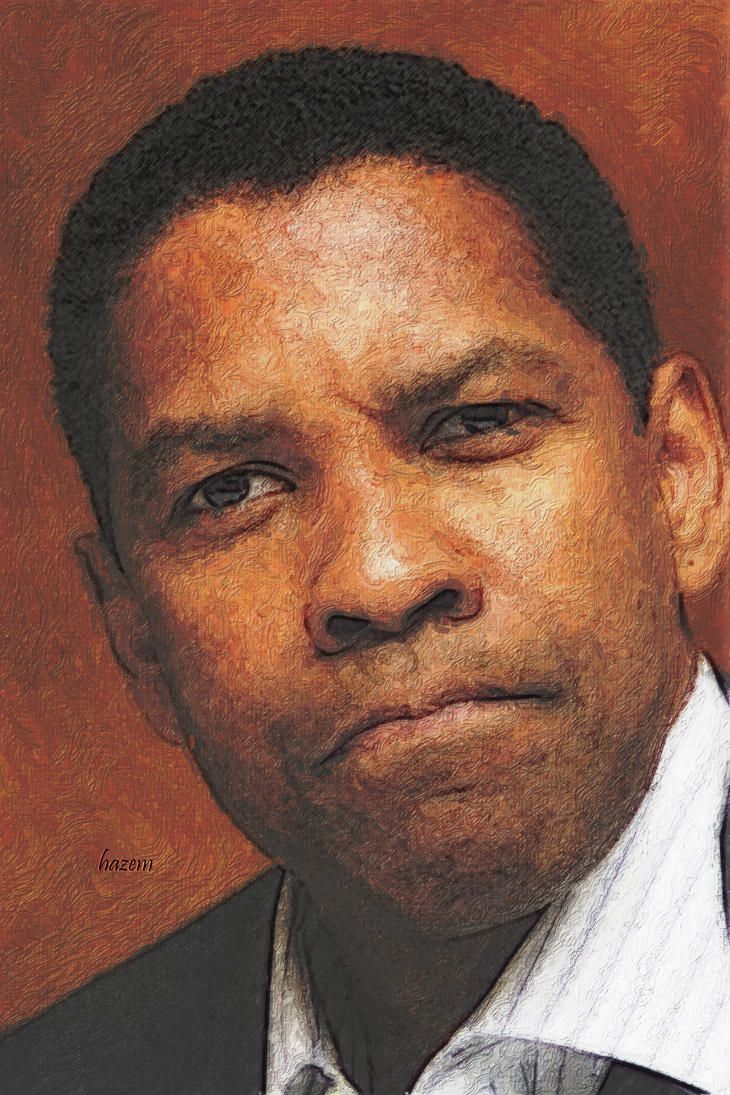
7. **Denzel Washington**
Denzel Washington stands as an undisputed legend in the film industry, a celebrated actor, director, and movie producer whose influence has elevated Hollywood to a new echelon. With a career spanning more than four decades, Washington has utilized his exceptional talent to make a profound difference, consistently setting a high bar for dramatic excellence and integrity on screen. His enduring presence has become synonymous with powerful and complex storytelling within the industry.
Washington is widely recognized for taking on lead roles in critically acclaimed films such as ‘Macbeth,’ ‘The Equalizer,’ ‘The Book of Eli,’ and ‘The Magnificent Seven,’ all of which have garnered significant attention and made waves globally. His performances are consistently hailed for their depth and intensity, showcasing an unparalleled command of his craft. He has garnered several individual accolades for his incredible performances throughout his career.
Notably, Washington has received the Best Actor Oscar on three occasions and the Best Actor Golden Globe, achievements that have remained unmatched for years and solidify his status as one of the greatest actors of all time. His ability to deliver consistently compelling portrayals has redefined Black masculinity and versatility on screen, setting an unparalleled standard for acting that resonates across diverse genres.
Beyond his captivating performances, Denzel Washington is also a notable philanthropist and human rights activist, whose contributions to Hollywood have demonstrably led to an increase in the number of Black actors over the years. His influence extends beyond his roles, as he has actively mentored young Black actors and continuously pushed for the portrayal of strong, dignified Black characters in film, embodying a commitment to authentic representation.
He truly deserves immense credit for his enormous talent and his unwavering contribution to making Hollywood a more equitable and inspiring place. His work has ensured that future generations have both a benchmark for excellence and a pathway for continued growth, proving that talent and conviction can indeed transform an entire industry.
Read more about: From Hollywood to Moguls: 14 Celebrities Who Mastered the Art of the Career Pivot and Never Looked Back
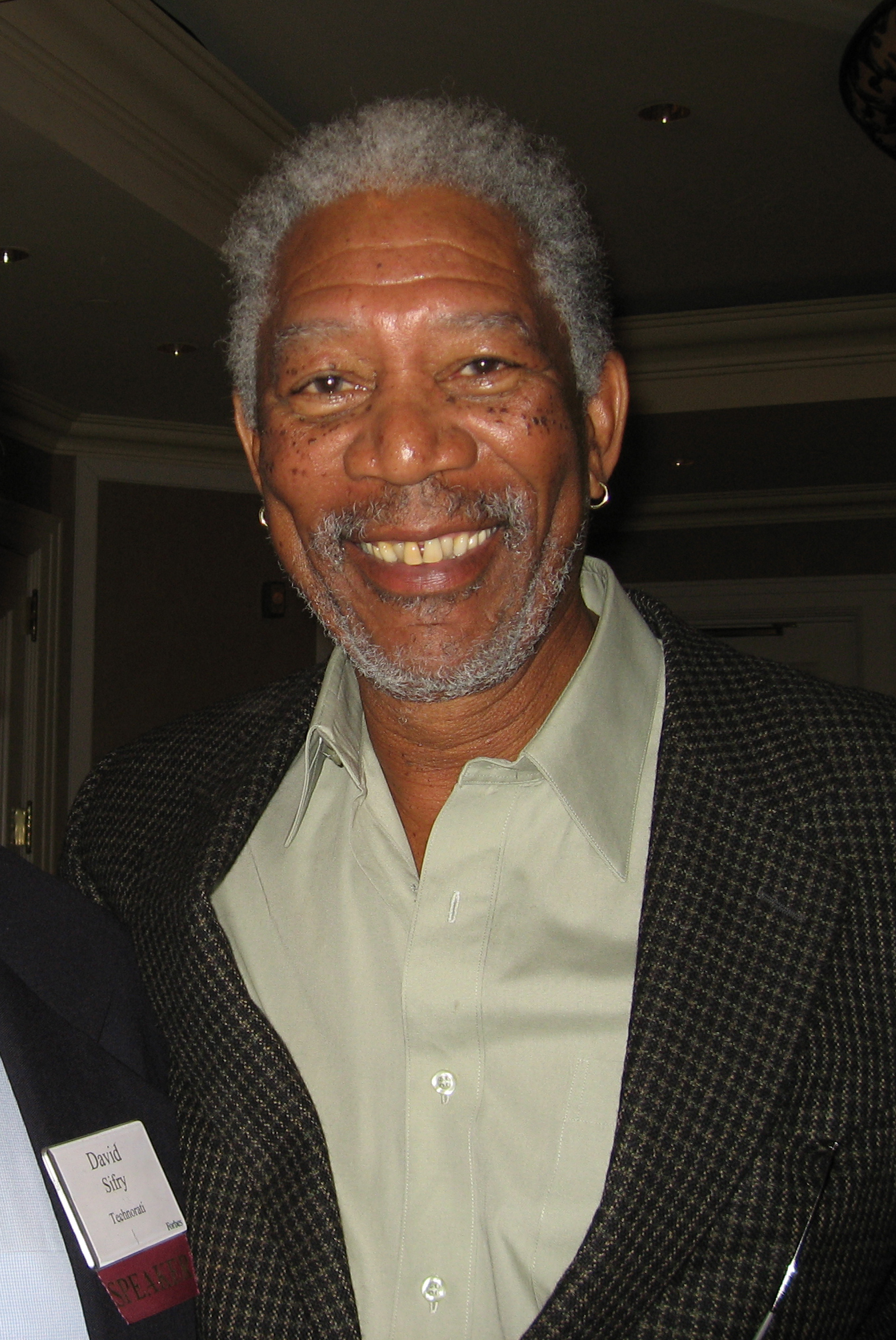
8. **Morgan Freeman**
Morgan Freeman has unequivocally demonstrated to the world that racial background is no barrier to reaching the pinnacle of success as a leading actor in Hollywood. Born and raised in Memphis, Tennessee, he began his remarkable acting career in 1964 at the age of twenty-seven, a relatively late start by some measures. Yet, Freeman has amassed an extraordinary career spanning almost six decades, becoming an iconic and respected figure in the industry.
His distinctive deep voice and exceptional oratory skills make him instantly recognizable, contributing to his formidable presence both on and off screen. Freeman’s breakthrough in Hollywood proved to be an eye-opener, significantly expanding opportunities for many Black actors to prove their capabilities and artistic range within the industry. He consistently portrayed complex, dignified characters that moved beyond prevalent racial stereotypes.
Some of his most notable films include ‘The Shawshank Redemption,’ a cinematic classic, and ‘The Kominsky Method,’ showcasing his versatility across different formats and dramatic tones. For his outstanding work, he has received several individual awards, including the Best Supporting Actor Oscar for his powerful performance in ‘Million Dollar Baby,’ and the Best Actor Golden Globe Award for ‘Driving Miss Daisy.’ He was also honored with the Cecil B. DeMille Award, recognizing his extensive contributions to the world of entertainment.
As both an actor and a human rights activist, Freeman’s roles in films like ‘The Shawshank Redemption,’ ‘Driving Miss Daisy,’ and ‘Million Dollar Baby’ were instrumental in proving that Black actors could embody complex, dignified characters that transcended racial stereotypes. His profound influence extends notably to narration and film production, areas where he has actively worked to ensure that Black stories are told with authenticity and depth.
Freeman’s deep, commanding voice and wise presence have cemented his status as one of Hollywood’s most respected figures, illustrating how a sustained career built on talent and integrity can profoundly impact industry perceptions and open new avenues for diverse storytelling. His enduring legacy continues to inspire, reminding us of the power of a dedicated performer to shape cultural narratives.
Read more about: Smile! You’re On Camera! We Found the 12 Actors Whose Grins Are IMPOSSIBLE Not to Recognize!
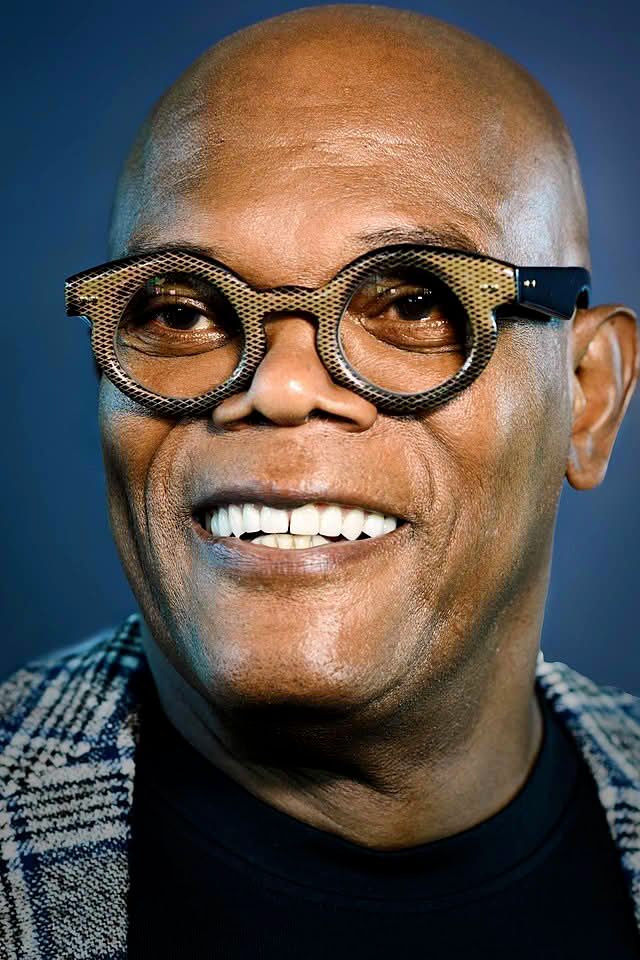
9. **Samuel L. Jackson**
Samuel L. Jackson stands as arguably the most successful actor of his generation, having maintained a prominent position at the peak of his career since the 1990s. His prolific output is remarkable, with appearances in over a hundred and fifty films throughout his extensive career. This extraordinary volume of work has positioned him in an exclusive category as the highest-grossing actor in history, with his films collectively earning more than thirty billion dollars worldwide.
Jackson’s filmography is a testament to his versatility, encompassing a wide range of iconic roles. His works include powerful dramas like ‘Django Unchained’ and ‘Do the Right Thing,’ as well as classic comedies such as ‘Coming to America.’ More recently, he has achieved global recognition for his pivotal role in the ‘Avengers’ franchise, where he leads the vigilante group, further solidifying his status as a cultural icon.
Following a series of notable performances, Samuel L. Jackson achieved A-list fame through his unforgettable portrayal of Jules Winnfield in Quentin Tarantino’s critically acclaimed ‘Pulp Fiction.’ This particular role earned him an Academy Award nomination and indelibly cemented his status as a cultural icon, showcasing his unique ability to command the screen with charisma and intensity.
Throughout his career, Jackson has earned several personal accolades, establishing himself as one of the most decorated Black actors in history. His reputation for bringing a distinctive gravitas and dynamic energy to every character, whether in action blockbusters like ‘Die Hard with a Vengeance’ and the ‘Avengers’ franchise or in dramatic works such as ‘A Time to Kill’ and ‘Coach Carter,’ highlights his enduring appeal and artistic depth.
His remarkable success and consistent high performance have not only secured his place in Hollywood but also demonstrated the immense potential for Black actors to achieve widespread acclaim and financial success across all genres. Jackson’s career represents a powerful expansion of representation, showcasing Black talent at the highest echelons of global cinema.
Read more about: America’s Defining Eras: A Showdown of 10 Pivotal Moments that Shaped the Nation (And Why They Still Matter)
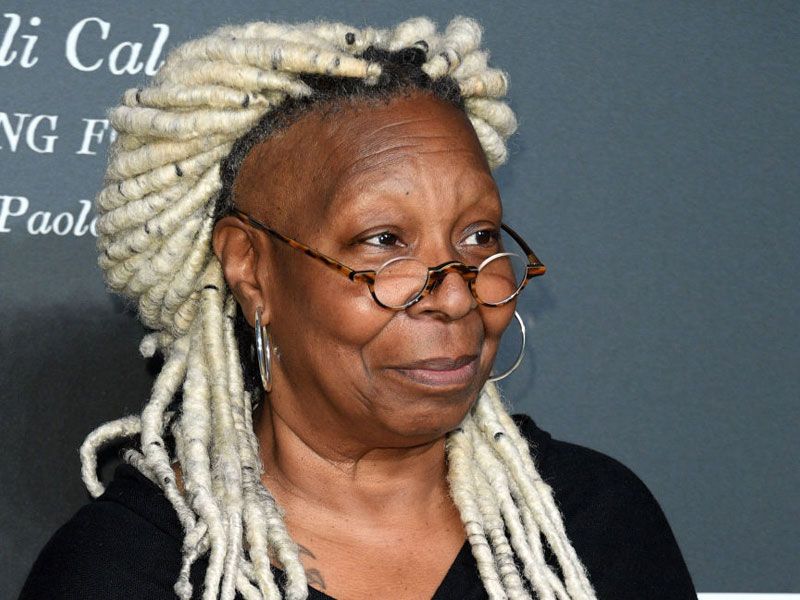
10. **Whoopi Goldberg**
Whoopi Goldberg’s career is a vibrant tapestry of artistic achievement and barrier-breaking, making her one of the most distinguished figures in Hollywood. She has earned the coveted EGOT status, an exclusive honor signifying wins across Emmy, Grammy, Oscar, and Tony Awards, placing her among a very select group of entertainers to achieve such comprehensive recognition. This remarkable feat underscores her profound versatility and talent across multiple entertainment mediums.
Her Oscar win for her compelling performance in ‘Ghost’ marked a truly historic moment, making her only the second Black woman in history to win an Academy Award for acting, following the pioneering Hattie McDaniel. This achievement not only highlighted her exceptional acting prowess but also further shattered long-standing racial barriers within the film industry, opening doors for future generations of Black actresses.
Goldberg’s unforgettable performances in films such as ‘The Color Purple,’ for which she received an Oscar nomination, and the immensely popular ‘Sister Act,’ have cemented her status as a versatile and formidable force in Hollywood. Her ability to transition seamlessly between profound drama and broad comedy showcases a rare range that few actors possess, captivating audiences worldwide.
Her extraordinary career has vividly demonstrated that Black women can indeed thrive and excel in every corner of the entertainment industry, from the dramatic stage to the comedic screen. Whoopi Goldberg’s sustained success, coupled with her iconic status, continues to inspire, reminding Hollywood and the world of the boundless talent and expansive possibilities for diverse artists.
Read more about: The Unseen Burdens: Tragic Realities That Defined Sasha and Malia Obama’s Public and Private Lives
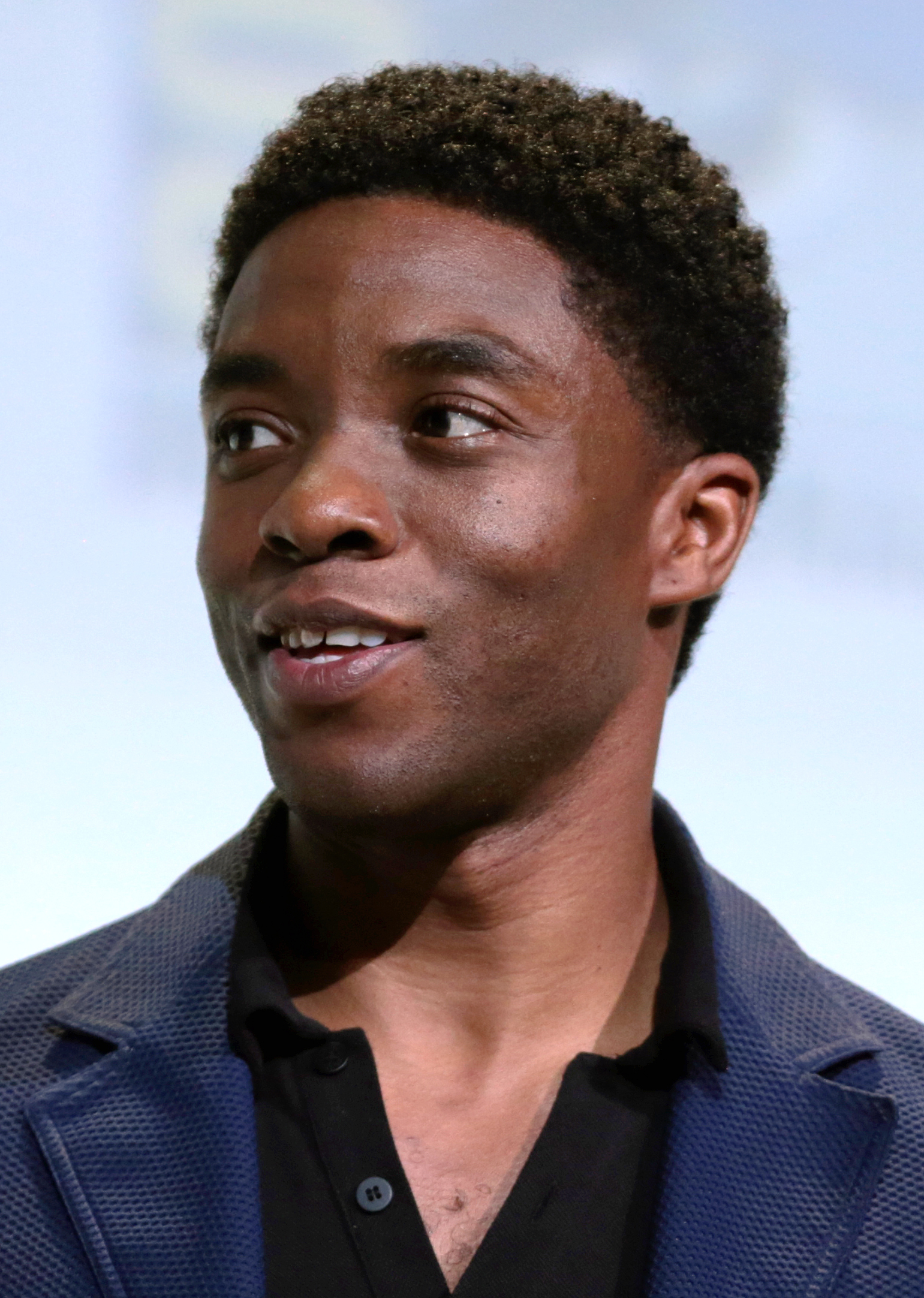
11. **Chadwick Boseman**
Even though Chadwick Boseman passed away at the tragically young age of forty-three, his legacy profoundly lives on, with his films remaining among the most successful and impactful globally. His remarkable journey in the film industry commenced after he graduated from Howard University, where he was recognized as one of its top students. His debut role in the 2005 film ‘Deep Azure’ quickly earned him the Jeff Award, signaling the beginning of a truly promising career.
In 2010, Boseman gained widespread popularity and global attention through his participation in the series ‘Person Unknown.’ However, it was his casting as the main character in the now-famous Marvel Studios superhero film, ‘The Black Panther,’ that indelibly etched his name into cinematic history. This role was not just a performance; it was a cultural phenomenon that resonated deeply with audiences worldwide.
While he also delivered powerful performances in several other notable films such as ‘Marshall,’ ’42,’ and ‘Get on Up,’ it was undoubtedly his iconic portrayal in ‘Black Panther’ that elevated his name above many famous actors in the world. His ability to bring depth, dignity, and strength to this groundbreaking superhero character redefined representation for Black men in blockbuster cinema, demonstrating that Black actors could lead major franchises.
Boseman received several individual accolades for his work, including the BET Award, MTV Movie and TV Awards, and the Screen Actors Guild Award, among others, further attesting to his immense talent and impact. His monumental success directly inspired countless Black actors, instilling in them the belief that they could indeed take on huge, leading roles in Hollywood and showcase their best talents on a global stage.
Chadwick Boseman’s enduring impact transcends his tragically short career, leaving an indelible mark on Hollywood by expanding the horizons of Black representation and redefining the scope of heroic portrayals. His work continues to resonate as a beacon of artistic excellence and cultural significance, reminding us of the power of authentic storytelling.
Read more about: Hollywood’s Unforgettable Swan Songs: 15 Stars Whose Final Films Shined Brightest
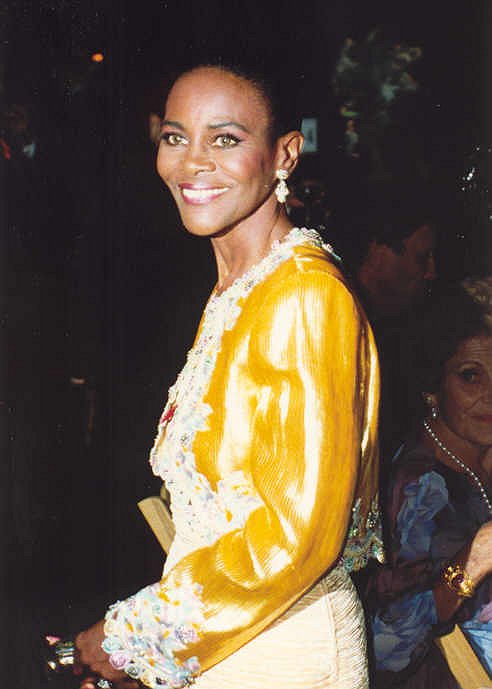
12. **Cicely Tyson**
Cicely Tyson was a legendary actress whose groundbreaking career fundamentally redefined the types of roles available to Black women in Hollywood, challenging limiting stereotypes and advocating for authentic portrayals. Her unwavering commitment to integrity and her extraordinary talent allowed her to bring profound depth and humanity to complex stories about the Black experience, leaving an indelible mark on the industry.
Her Emmy-winning performances in ‘The Autobiography of Miss Jane Pittman’ are a testament to her remarkable ability to inhabit characters with grace and conviction. Similarly, her Oscar-nominated role in ‘Sounder’ showcased her exceptional talent and her capacity to convey the struggles and resilience of Black individuals with profound emotional honesty. These roles were not just performances; they were powerful cultural statements.
Tyson consistently chose roles that empowered Black women and challenged societal norms, making her a pivotal figure in expanding meaningful representation on screen. She became an embodiment of strength and dignity, inspiring generations of actresses to pursue roles that reflect the full spectrum of the Black female experience rather than succumbing to reductive portrayals.
In recognition of her profound contributions, Cicely Tyson received numerous exceptional distinctions throughout her illustrious career, including America’s highest civilian honor, the Presidential Medal of Freedom. These accolades underscore her immense impact not just as an artist, but as a cultural icon who used her platform to advocate for social justice and authentic storytelling.
Cicely Tyson’s legacy is one of unparalleled grace, fierce integrity, and revolutionary artistry. She paved the way for more nuanced and powerful Black female characters in film and television, leaving an enduring blueprint for aspiring actors and filmmakers. Her career remains a powerful reminder of how artistic excellence, coupled with an unyielding spirit, can truly transform an industry and inspire a nation.
Looking back at these remarkable individuals, it becomes abundantly clear that the transformation of Hollywood has been a continuous journey, propelled forward by immense talent, unwavering courage, and an unyielding commitment to justice. From the early trailblazers who shattered initial barriers to these later stars who expanded representation and redefined roles, each artist has contributed to an ongoing legacy of progress.
Read more about: Trailblazers & Triumphs: Unpacking the Incredible Legacies of 14 Black Female Icons Over 70
Their collective stories are a testament to the power of perseverance and the profound impact of authentic voices in shaping global narratives. The dedication of these Black stars has not only enriched the cinematic landscape but also fundamentally altered societal perceptions, making Hollywood a more reflective and inclusive mirror of the world. As we celebrate their monumental achievements, we are reminded that the fight for equality and diverse representation remains a vital endeavor, constantly evolving and continuously inspired by the giants on whose shoulders we stand, ensuring that talent knows no bounds and that every story finds its rightful place on screen.



